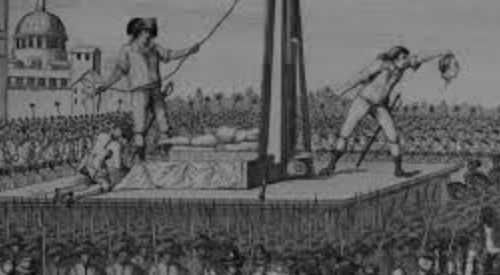The polls continue to look (very) bad for Corbyn’s Labour. One in three Labour voters think May would be a better PM. Older voters overwhelmingly oppose him and even in the younger age groups he can’t command a majority.
The weekend papers have been full of eloquent criticisms of his leadership. Janice Turner (£) and Nick Cohen pull no punches and are well worth reading, as is Rob Francis here.
Less impressive was Carol Malone’s scattergun attack on Corbyn supporters – she implied that the far right extremist who abused Luciana Berger was a Labour supporter. Of Eagle’s treatment (undoubtedly bad) she said:
In the old days, these militants would be happy to see women like Eagle sent to the gulag and tortured. Today she is tortured on social media by bully boys who believe they’re acting in Corbyn’s name.
Wild analogies don’t help. However there are clearly real problems in Labour. Bristol MP Thangam Debbonaire offers a startling account of her treatment in the Shadow Cabinet:
“Mr Corbyn appointed me and press released this without my knowledge or consent while I was in the middle of cancer treatment. He then sacked me the next day when he realised he had given away part of someone else’s role. But didn’t bother to tell me that either.
…
She added: “The reason I then voted no confidence in him as leader is because I have no confidence in him as leader. See above. Plus I had found out from other front bench women how unwilling and unable Corbyn is to communicate with, listen to or work with anyone outside his narrow group.”
And The Times(£) reports on a particularly uncomradely Labour Party party:
Baroness Royall, a former leader of the House of Lords, thanked supporters for sticking with Labour in difficult times, and reminded them that a brick had been hurled through leadership challenger Angela Eagle’s office window just that morning.
“It was only one f****** brick,” shouted a supporter of Jeremy Corbyn, to shock around the room.
Royall’s co-host, Chris Bryant, a former shadow cabinet minister and MP for Rhondda, attempted to intervene. But the heckler was backed up by a small hard-left group who called Bryant a “traitor” and “scumbag” and accused him of lying about receiving death threats.
The recent eventful NEC meeting continues to divide Labour:
Yet Corbyn and his allies opposed a move that might have protected his critics from public retaliation. “I saw Jeremy’s hand go up and just thought, ‘You bastard’,” said one NEC member.
It’s understandable that those affected are frustrated by the January cut off date and the huge hike in fee to become a registered supporter – and by the controversial ban on meetings. (If you missed it, here’s a report of an ‘informal’ meeting in Angela Eagle’s own constituency which Jeremy Corbyn addressed on speaker phone.) Ann Black’s thorough analysis of key decisions, from a left perspective, is worth reading.
There have of course been many complaints about people from far left groups infiltrating Labour. And now claims of ‘entryism’ are being made by the other side. Last year’s entryists from the right were a few Tory supporters mischievously voting for Corbyn. Now his followers are worried that soft centre left types may be signing up as supporters to vote against him.
And on that note, here’s an interesting post by Carl Gardner inviting people to pay £25 to help secure a decent opposition.
Corbyn’s supporters are likely to point out that neither Angela Eagle nor Owen Smith is (so far) proving a resounding success with potential voters. You can watch both of them make their case on the Andrew Marr Show – both separately and, rather awkwardly (from 53:00), together on the sofa.
Finally – a few musings on mandates, partly in the hope of prompting further observations and analysis from readers. The current situation in the Labour Party has revealed – and deepened – the familiar pattern whereby the PLP sit between their often more left wing members and activists, on the one hand, and the more centrist and fickle electorate as a whole. Of course some of that electorate will never vote Labour, but many might do so. As these potential voters include Socialist Worker supporters, Blairite centrists and those tempted by UKIP they can’t all be kept on board.
Jeremy Corbyn’s supporters argue – not unreasonably – that they have a huge mandate, and not just from £3 supporters. The Labour membership’s move to the Left began some time ago, and Corbyn looks likely to withstand the current challenge. One of the PLP’s counterarguments is that whereas Corbyn may have a mandate of 250,000 they have a collective mandate of 9.3 million voters. But most Labour voters have had no say in who their Labour candidate is. How would candidates to their left have fared last year – and how might Corbyn supporting candidates replacing deselected moderates perform next time round?
They would presumably pick up quite a few votes that would previously have gone to far left independents and to Greens (although the Green Party is holding up better than have might have expected with Corbyn offering a Left alternative.) They would also lose moderate centrists to the Lib Dems, and other floating voters to the Conservatives and UKIP. However some UKIP supporters, by contrast, are attracted by Corbyn’s air of authenticity.
As well as considering the pool of potential Labour voters – itself both large and complex – it’s also worth thinking about those who would never (or hardly ever) vote Labour, and whether their behaviour would have an impact on a Corbynista MP’s election prospects in our first past the post system. In a Lib Dem/Labour marginal (such as Cambridge), for example, would some Conservative voters switch to Lib Dem to keep Corbyn’s Labour out?


